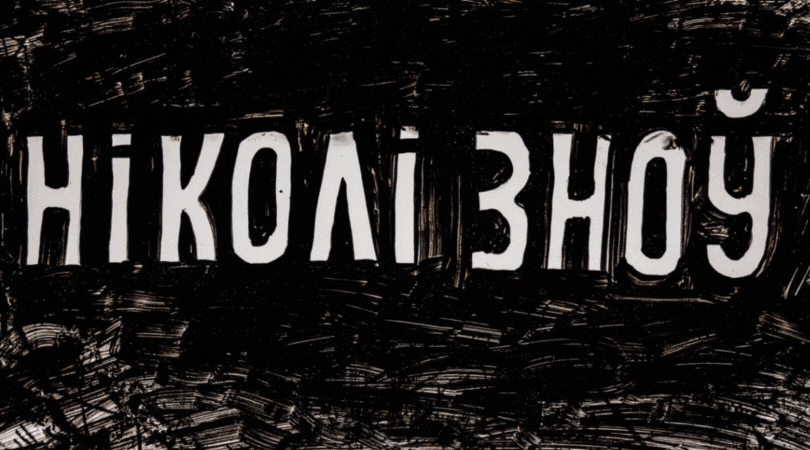To sacrifice millions and save ten - can negotiation tactics be successful?
More than three years have passed since the beginning of the Belarusian revolution. Society, like an individual, cannot live indefinitely in a state of increased mobilization. One way or another, people are included in the existing economic, political and civil rhythms of life in the country. Moreover, wars break out one after another in the world, local armed conflicts occur, and the whole planet seems to have frozen on the eve of a global collision.
More than three years have passed since the beginning of the Belarusian revolution. Society, like an individual, cannot live indefinitely in a state of increased mobilization. One way or another, people are included in the existing economic, political and civil rhythms of life in the country. Moreover, wars break out one after another in the world, local armed conflicts occur, and the whole planet seems to have frozen on the eve of a global collision.
In such conditions, voices are increasingly heard saying that “ nothing can be changed ”, “ life moves on ” - the dictatorship has survived and for a long time to come. This means that we should come to terms with this state of affairs and look for ways to implement political, civil or other tasks, taking into account this harsh truth.
At the same time, one of the narratives voiced by some representatives of civil society is the desire to find ways to persuade Lukashenko’s regime at all costs. The subject of these agreements is the release of any possible number (literally at least one) of political prisoners, and the condition for starting such a dialogue is the possible easing of sanctions or their partial, possibly complete, lifting from the dictatorial regime.
What is wrong with the position of people who are ready to do anything to save at least one human life, which is priceless?
First of all, it is worth saying that those who propose such things do not have the slightest plan for how such a dialogue can begin. The main thing is that they do not have levers of power with which they could influence the situation with the political and economic pressure that the Western world rightly puts on the post-Soviet dictatorship of Belarus. It would seem that this fact already exhaustively characterizes such discussions, but there are consequences that, if the fantasies of such negotiators come true, will be more terrible.
First, it’s worth dotting the i’s when talking about the value of human life, the importance of liberating every person and ensuring his inalienable rights. When trying to find something that might interest Lukashenko, it will certainly turn out that this something will strengthen and enrich the regime , make it more stable and stronger. And if we all agree that what is happening in Belarus is political terror , and the hostages of the government system are not only political prisoners, but the majority of the country’s population, then such a strategy of searching for moments and solutions that are profitable for the dictatorship is actually pandering to the terrorist in the person of the mad dictator and his security forces apparatus.

Master Aliaksandra Kanafalskaya
The terrifying consequence of such interactions will be the further systematization of repression , its deepening and justification for both the regime and the world community. Lukashenko and his entourage will be convinced of the correctness of their chosen tactics and will continue to trade in the health and lives of people, only now not just single political prisoners, but thousands. In place of one person who is released, dozens, if not hundreds of new innocent people will be imprisoned.
Understanding this, we simply cannot afford an exclusively emotional assessment of this issue, and must be guided by an understanding of the systemic nature of repression. The consequences of the strengthening of the dictatorship will bury indefinitely any hopes that human rights will prevail in our country. In our opinion, democratic forces and the human rights community should respond to the situation with the composure of a surgeon who knows his business and acts measuredly, not guided by emotional reactions and not having the right to be distracted by something that could frighten or confuse an unprepared person.
Another important problem with the regime’s persuasion is the political consequences , which will undoubtedly affect the rights of many people who have already experienced repression or even escaped it. At the moment, the democratic community of Belarus, actually being in forced emigration, is working painstakingly to piece together a puzzle by puzzle to put together the overall picture of a healthy and free society. Today this is the only alternative to the darkness and lawlessness that reigns in the country itself. It is with democratic forces and civil society that political actors in neighboring countries, as well as democratic forces around the world, can and should conduct a dialogue. By allowing Lukashenko to start bargaining with the West - a bargain in which this political terrorist uses people as a means of exchange for profit for his criminal rule - we will actually nullify all the efforts of the Belarusian society made so far in any of the chosen directions - from preserving Belarusian culture to creation of elected democratic institutions. If the dialogue between democracies and authoritarianism moves in this direction, all need for pro-democratic forces and leaders will disappear , leaving in the margins the voices of all those who advocate the systemic transformation of the country into an independent and free state. A number of problems with legalization and asylum will affect everyone who fled from repression or survived it and was forced to leave the country, because having started interacting with Lukashenko and having a couple of illustrative cases of people’s liberation, no one will go into the horror that awaits people inside the country and continues behind the scenes of negotiations, lifting of sanctions and other “real politics”.
What can we offer? What should we do then and don’t we want to save people?
Of course, the salvation of each and everyone is a great cause, to which it is worth directing all your strength. And that is exactly what we and many other activists, initiatives, politicians and independent journalists are doing. Why did saving people at some point come to be seen as an attempt to please the regime and butter it up? Didn’t it become obvious after 2020 that dictatorship based on force understands only a similar language? Why don't we focus our efforts on making sure that sanctions against criminals work? Isn't it worth advocating for increased pressure on those who turned the country into a concentration camp?
The release of all political prisoners without exception is a wonderful and lofty goal. However, this must be a condition that terrorists must fulfill in order for any dialogue to begin, otherwise it will be the literal pandering of criminals and villains.

Master Aliaksandra Kanafalskaya

